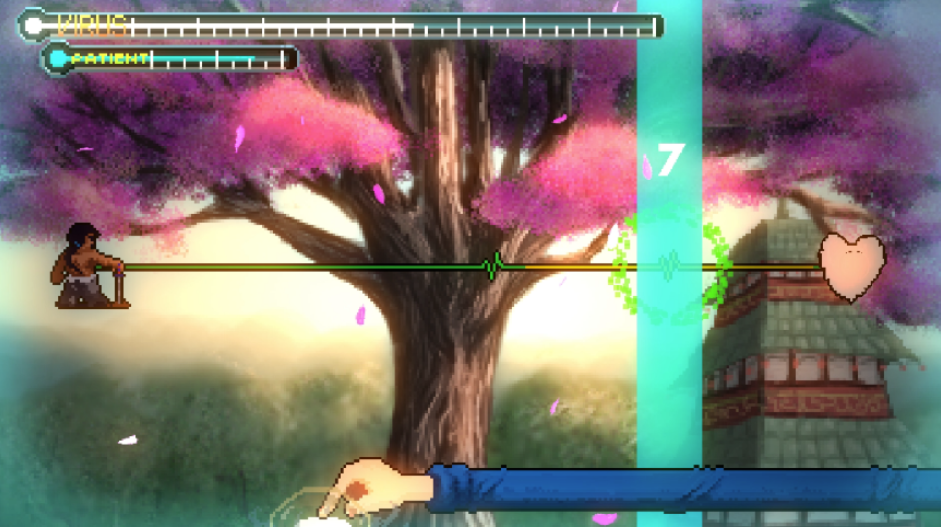How do Systems Produce Meaning in Games?
October, 2024 | Game Studies, Software Studies, Game Rules
 A Screenshot of Rhythm Doctor, a one-button rhythm game discussed in my paper on agency. It argues that in-game choices are not required to allow players to have agency in gameplay.
A Screenshot of Rhythm Doctor, a one-button rhythm game discussed in my paper on agency. It argues that in-game choices are not required to allow players to have agency in gameplay.
As someone trained in computer science and now turned to media/game studies, I’m drawn to thinking about how computational systems can embed, represent and produce meanings. Naturally, I’m interested in thinking games from the perspectives of computational systems, be it their rules, mechanics and infrastructure.
This turns out to not be a simple question — studying the meaning and aesthetics of a game’s rules and mechanics has decades of history in game studies, and is arguably the reason why game studies was established as a field in the first place.
A large portion of my dissertation is me chipping away at this question. I’m particularly influenced by the post-structural philosopher Gilles Deleuze and the critical feminist philosopher Karen Barad. Both of them think about meaning-making in a way that is not only imaginative, but also deeply interested in keeping in mind the social, cultural and historical dimensions of that question.
My first paper critiques proceduralism — a particular approach to interpret the meaning of game systems that we argue as too deterministic. Instead, we conceive meaning-making as fundamentally unstable and requires constant maintenance. Game systems, in this sense, are always capable of producing new meanings. And a stablized interpretation signals the stablizing of perception, cognition, socialization or culturation.
I also wrote a paper on agency — a hotly debated topic in game studies. Colloquially, agency is understood as the freedom the player has to shape the game. However, many scholars have argued that freedom does not automatically lead to agency. For critical theorists, agency is also a troublesome notion that implies power and control. My paper tries to formulate agency through synthesizing these points of contentions, and argues that the production of agency requires not only the game, but also the entanglement of everything around the play situation as well.
Turning away from conceptual discussion, one of my papers conducts a textual analysis on a dominant programming paradigm used in almost all game development: object-oriented programming. This is an attempt to show how to analyze software and systems while keeping in mind their social and historical conditions. I argue that object-oriented paradigm naturalizes a particular point of view that localizes qualities to bodies, e.g. a beautiful/ugly person is conceived as intrinsically beautiful/ugly. I studies Crusader Kings 3 and Civilization 6 to show how to problemitize these representational schemes. Object-orientation reinforces a particular ways of understanding on the infrastructural level.
There are many papers in the works that will further explore this topic. My overall dissertation framing tries to argue that computation has dramatically influenced ways we study systems in games. Thus, all of my papers so far can be understood as disentangling this influence to better study the meaning-making capacity of computational systems. Hopefully, this will eventually become a book project.